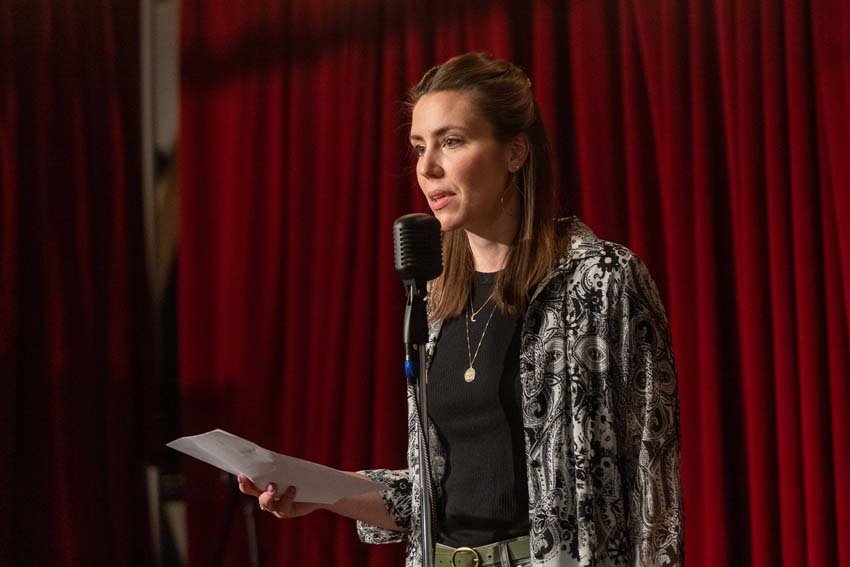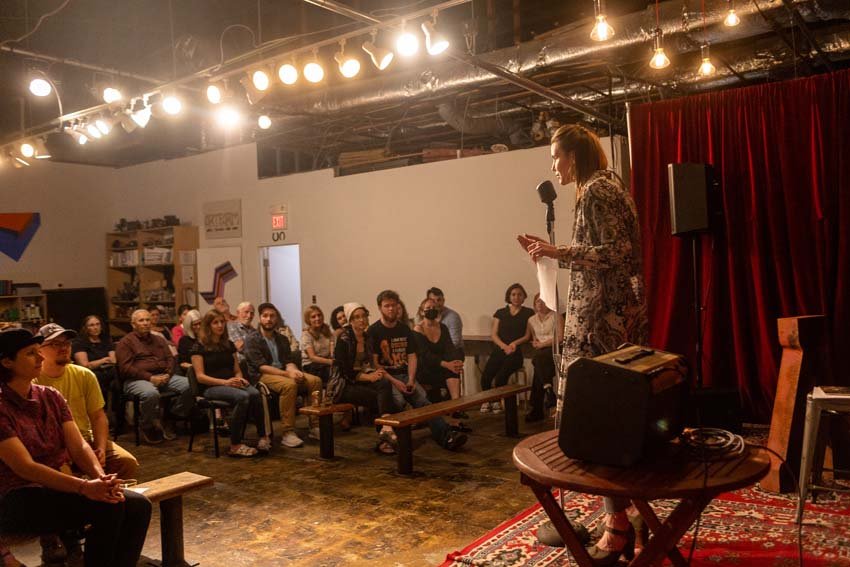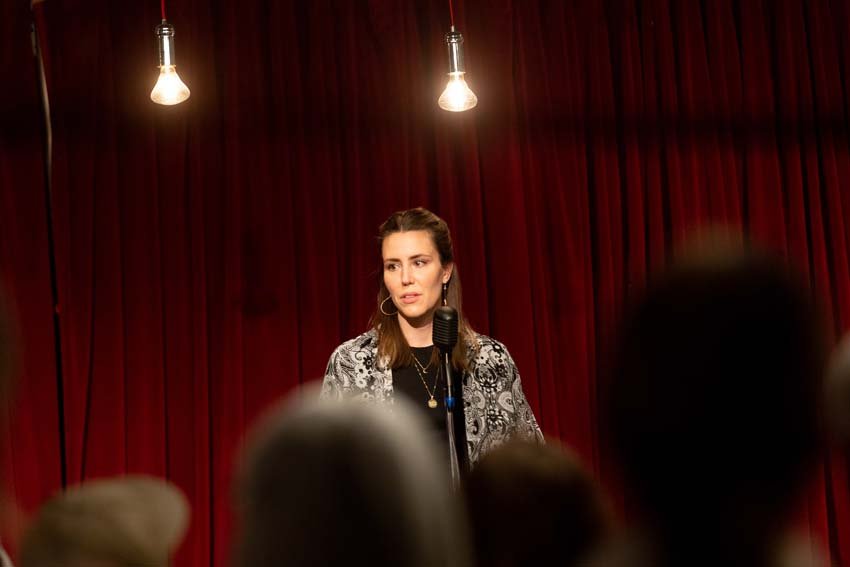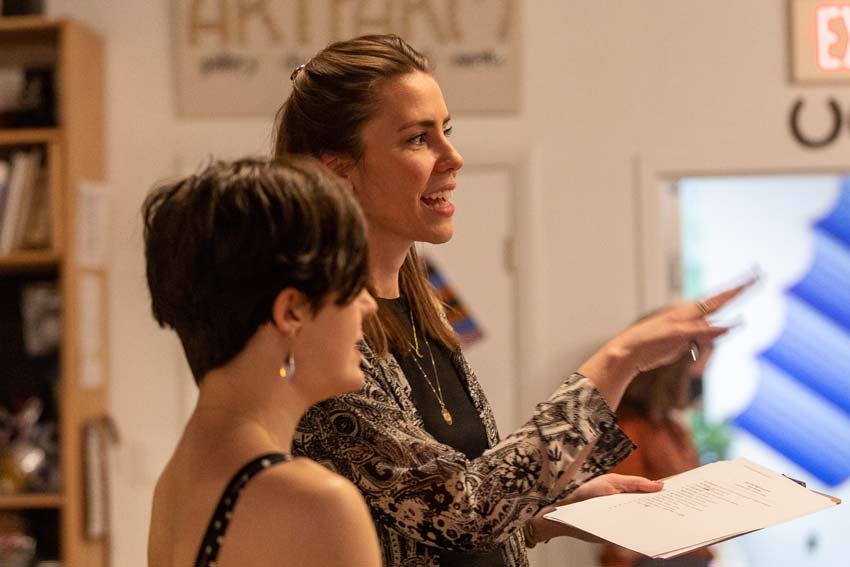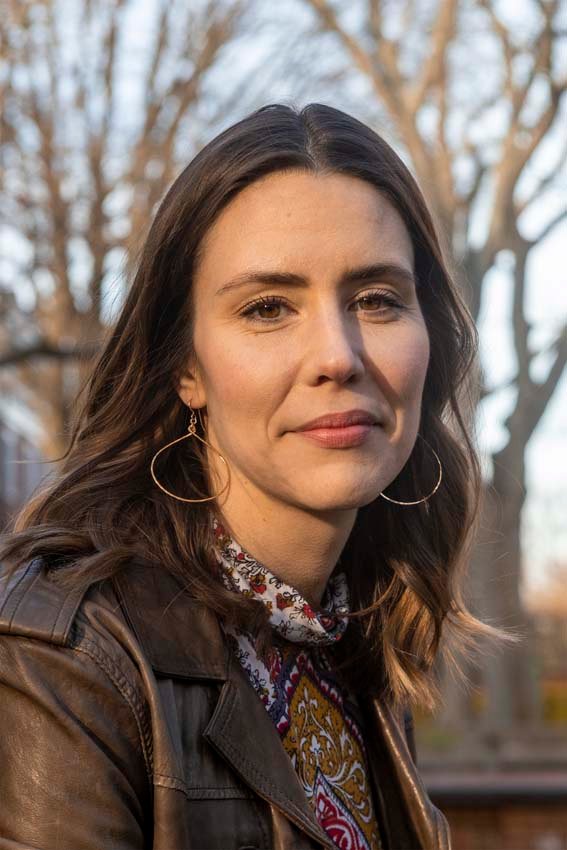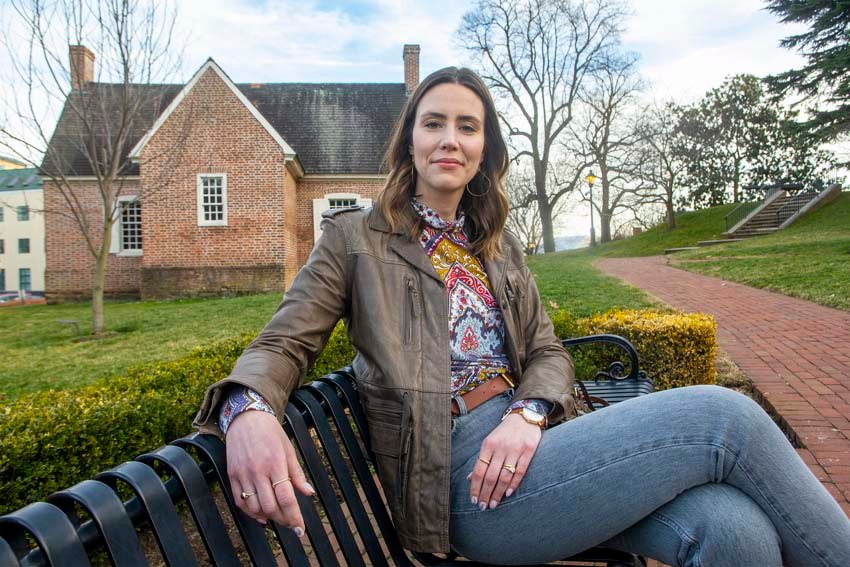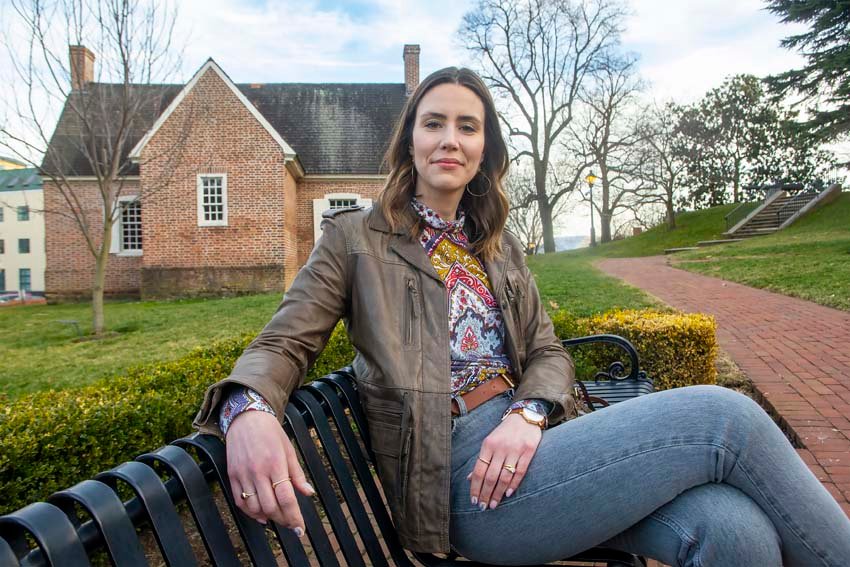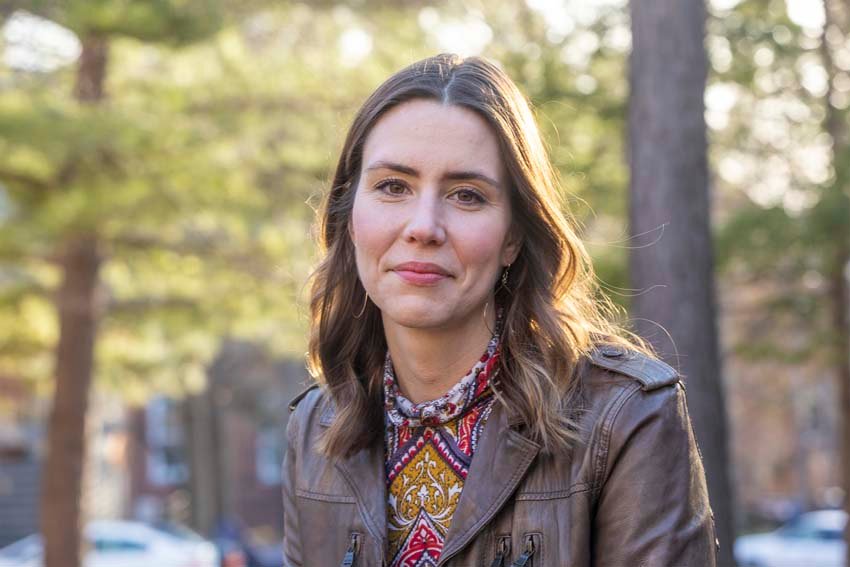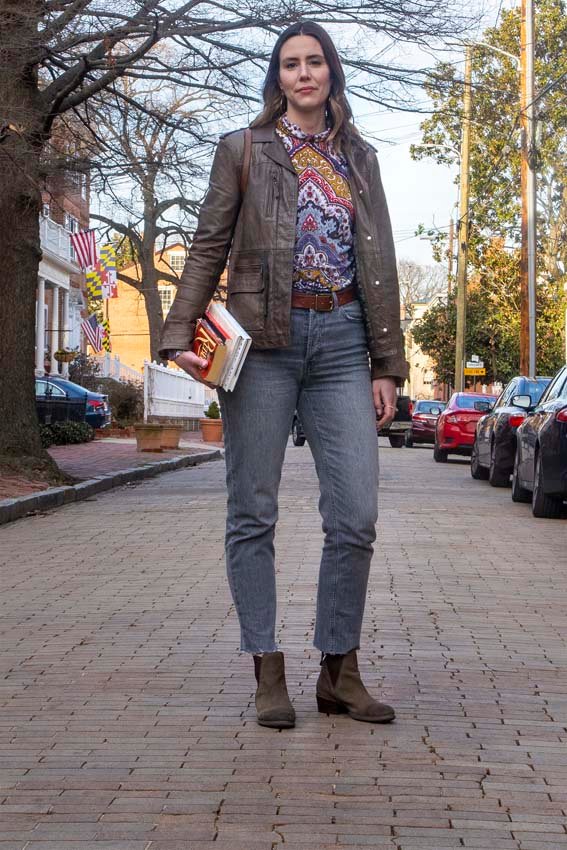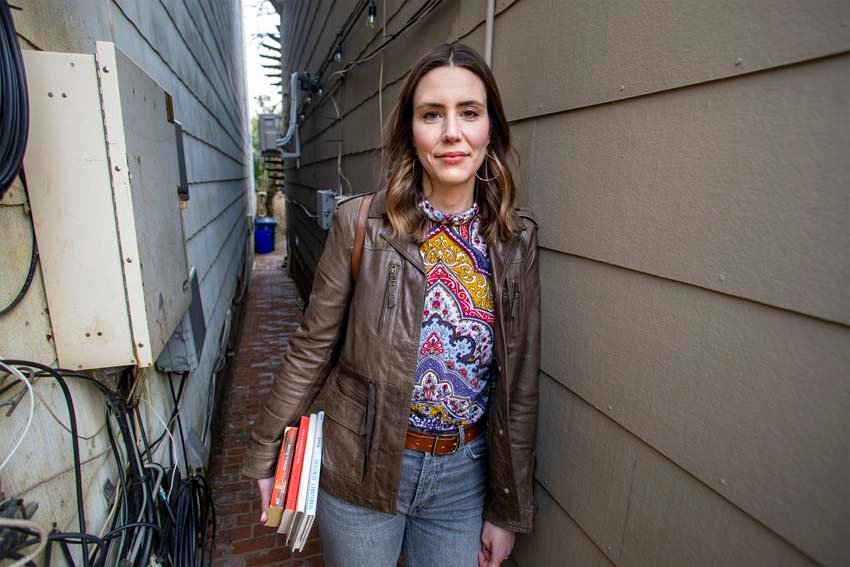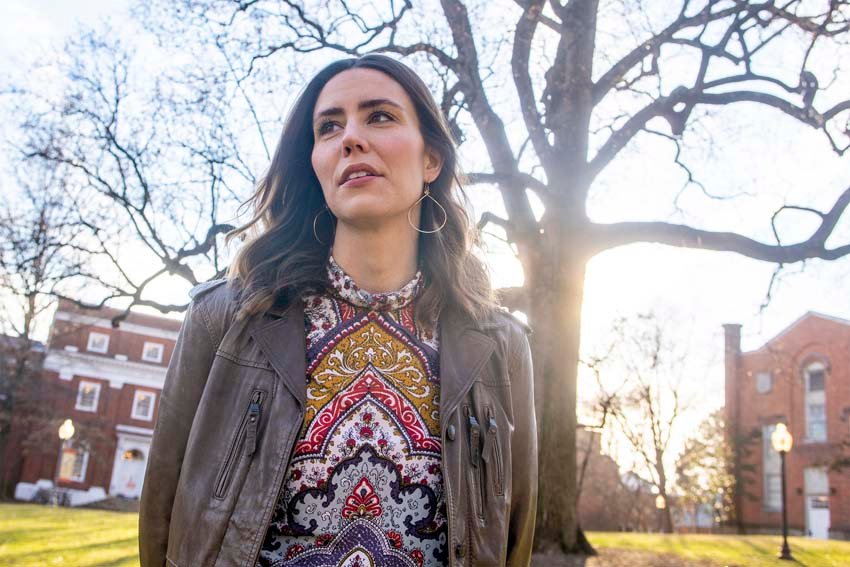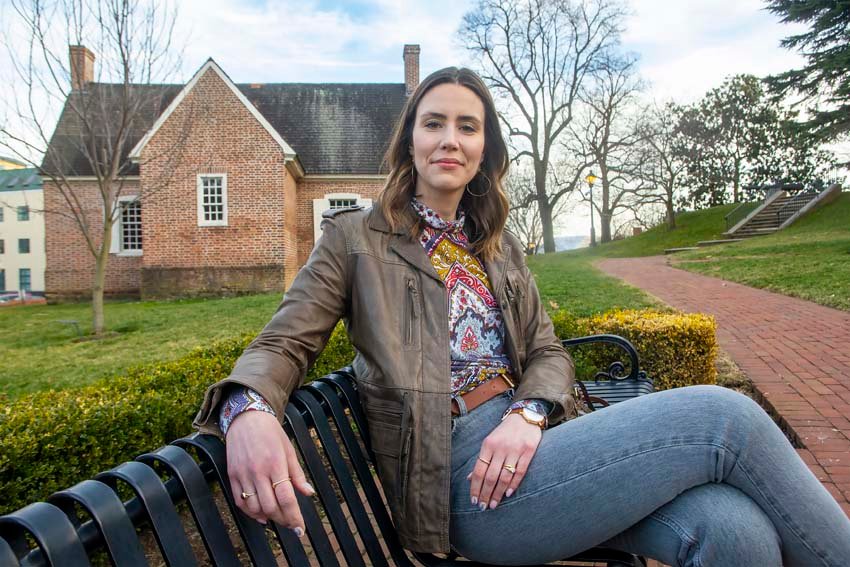+ By Dylan Roche + Photos by Josh McKerrow
When Maggie Benshaw got an email from the Art in Public Places Commission (AIPPC) asking if she knew of anyone interested in applying for the position of poet laureate for the city of Annapolis, she reached out to a few people she knew through her work as the creative writing teacher with the Performing & Visual Arts magnet program at Annapolis High School. But soon, Benshaw began to realize that she was interested in the position herself.
“Can I apply to this?” she asked the search committee. Their answer, she says, was yes.
That was in February 2021, and the application deadline was only a month away. By that April, Benshaw had been formally offered the position and was beginning her two-year term as Annapolis’s poet laureate, a role in which she cultivates an appreciation of local culture and community through reading and writing poetry. Only one other person has held the position since it was created—Temple Cone, English professor at the United States Naval Academy, who served a term from 2018 through 2020.
Though unpublished as a poet, Benshaw has a lifelong interest in the written word, an interest she loves sharing with others. “I don’t think I was qualified in terms of publishing, but my passion was there, and that’s what stood out,” she says, reflecting on her application and interview. “I’m honored. Sometimes I’m still a little beside myself that I hold this title. I’m flattered. I take a lot of pride in it.”

Benshaw should have no doubts about her qualifications, as she has been a writer since her youth. “I was that kid who always wanted journals or pens because I always wanted to write poetry,” she says. “I didn’t take the creative writing route in college; instead, I was an English lit major. I’m a reader first and then I’m a writer.”
She received her bachelor’s degree at Lycoming College, a small liberal arts school in her hometown of Williamsport, Pennsylvania. A job opportunity with Anne Arundel County Public Schools brought her to Annapolis, and she’s currently pursuing her master’s degree at Goucher College. While she aspires to publish a book of poetry in the future, she’s currently focused on teaching.
When she writes poetry, she inclines toward confessional, similar to Sylvia Plath, one of her favorite poets. “I’m writing based on my life’s experiences and hoping that connects with someone else,” she says.
Benshaw doesn’t only write poetry. “When I do write prose, it probably leans more toward flash fiction, things like that,” she says, listing her favorite authors as Margaret Atwood, Ray Bradbury, Gabriel Garcia Márquez, and Edgar Allan Poe. Even though she’ll read anything, magical realism and science fiction hold special places in her heart.
Providing samples of her written work was part of the application process for poet laureate; in addition, she had to write an essay about what she would bring to the city in this role. “I want others to realize that poetry is not this scary thing that people think it is,” she says. “People are intimidated sometimes by poetry. It really is more accessible than we think.”
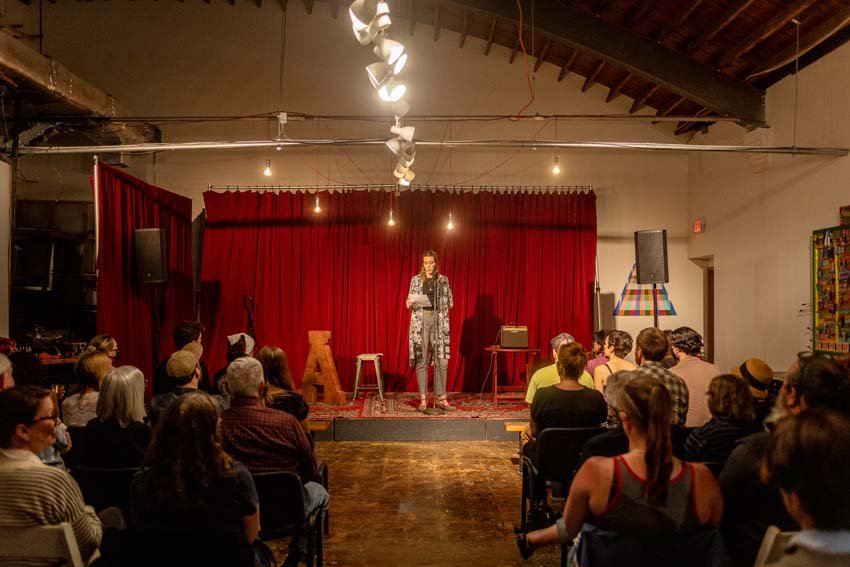
To achieve the goal of making poetry more accessible, Benshaw provided ideas for events that she wants to organize and hold—workshops, open mic nights, and other activities, all designed to bring together writers of all ages and experiences so that they could share in their craft. Getting those events up and running has been challenging in light of the pandemic. “Last year, things were a little slow,” she recalls. “[But] I’m determined, and if I want something and I feel like something needs to happen, I’m not going to stop until it does,” she says.
Thus far, she has held events at ArtFarm Studios featuring local writers Stewart Moss and Olivia Braley, as well as open mic nights for youth, which are especially memorable for her because of the way they empower young people. “When we have sign-ups at the door, there might be only 5 kids signed up, even though we have 35 kids there,” she explains. “But after the first 5 kids go, 20 hands go up because more of them want to do it, too. They think, ‘Okay, I’m just like this person who is up there already.’ They realize their voice and what they have to say matters.”
That’s a powerful understanding, one that Benshaw values and has long tried to emphasize to her students. “I want to make them realize their words hold power, especially in today’s world,” she says. “It’s an important thing to realize when they’re so young. I think, sometimes, we do forget the pen is mightier than the sword, to throw around a little cliché. But don’t be afraid. What have you got to lose?”
Benshaw has other plans in the months ahead: more open mic nights throughout the summer, organized writers groups, and even a proposal to the city to start doing what she calls “pavement poetry.” The last of these projects would entail lines of poetry painted on sidewalks all around Annapolis so that pedestrians can see and read them as they walk by.
While she’s busy motivating others, Benshaw has also found that being surrounded by so many talented wordsmiths and storytellers have motivated her in turn—something she values greatly. “It inspires me to dedicate more time to my craft. We’re never going to get better if we don’t practice. I have a few people on Instagram who send me their work, which I love,” she says. “It makes me realize I stay in this box when I’m writing, but I should be expanding and trying new things. I don’t always have to write about my life and what I’ve gone through. I could write a sci-fi poem. They inspire me and challenge me to be a better poet and a more conscientious poet as well.”
Benshaw feels that her work is about having everyone discover their own inner writer and inner reader. “More than anything, I just hope I can put poetry at the forefront and have people realize it matters,” she explains. “It’s accessible, it’s not scary, and there is a writer in all of us. We all have something to bring to the table in terms of our experiences and how we view the world.” █
